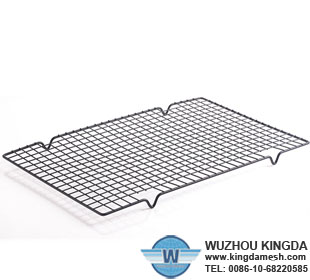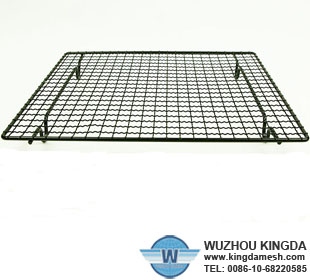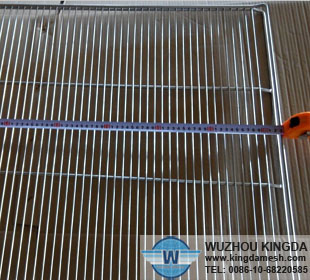The Strateries of Cooling Rack
Using a cooling rack is not as straightforward as just placing the hot food onto a flat rack. For example, having too much food on the rack can mean that your cooked meal may not cool down in time or as effectively. Instead, there are various strategies for using a cooling rack and each different way of cooling is specific to a certain type or amount of food.
The Flat Rack
The most common type of a cooling rack is the flat rack. A flat rack comes in various shapes and sizes but is always characterized by its wire criss-cross line pattern. Cooling racks are usually made from steel and have a chrome cover; they are not all dishwasher safe but some are non-stick. To use a flat cooling rack you should place the rack flat on a surface and place the hot food on top of the rack. The design of a flat rack is what makes it cool the food; it has various holes in the base that allow heat to escape from the bottom of the food and it has an elevated structure to ensure that there is enough room for heat to escape underneath. People sometimes use several flat racks across a surface if there is too much food for just one.
The Tiered Rack
A tiered rack is ideal for a situation where there is not enough surface space in your kitchen. A tiered rack works by stacking separate flat racks on top of each other but still manages to cool the food in an efficient and effective way. Wilton is a company that sells tiered racks in aluminum and nickel; they are dishwasher safe and sell at around $15 for a three-tiered rack. Tiered racks are also a useful strategy for cake makers because if you are making a layered cake you can keep its separate pieces together and in one place.




